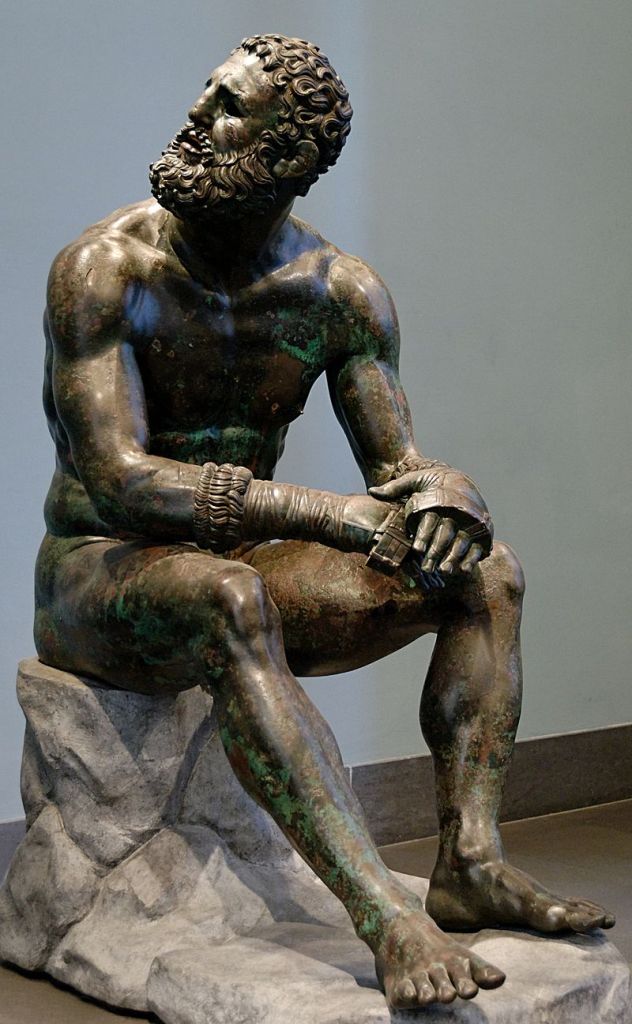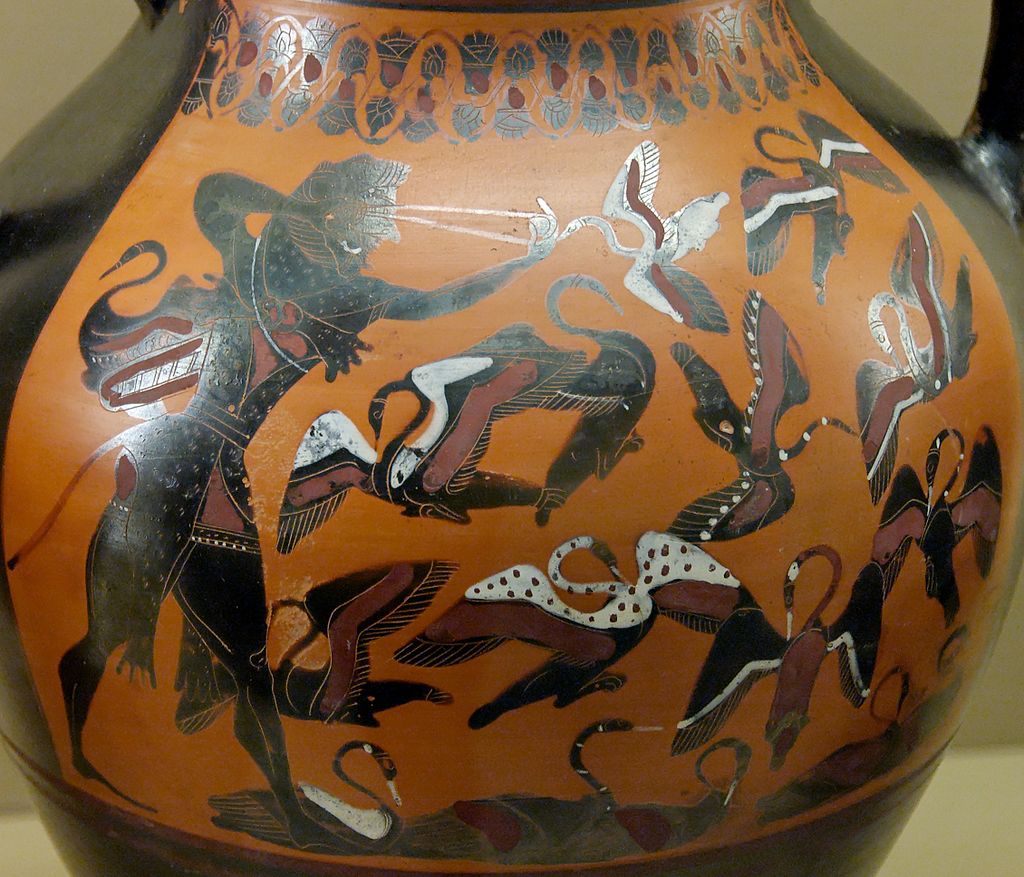The Argonautica, Book II
Overview
Book I Book II Book III Book IV
The Harpies & The Clashing Rocks
Their king, Amycus, a haughty and savage man, challenged all newcomers to a boxing match in which he usually killed them. Therefore, when the challenge was issued to the Argonauts’ strongest man, Polydeuces, famous for his boxing, stepped forward. Having fitted rawhide straps to their hands, the contest began with both men landing blows on the other but Polydeuces killed Amycus with a blow above the ear.

The Bebrycians then attacked the Argonauts but were no match for them and were soon routed. The Mariandryans, a rival tribe, looted their land and the Argonauts helped themselves to their flocks before feasting and setting sail the next day.
Having survived another storm they landed next at Thynia where Phineus lived. He was a prophet but, because he had not honoured the gods, Zeus punished him by blinding him and sending the Harpies to snatch his food whenever he tried to eat, leaving behind an awful smell. He was now old and weak and emaciated. As the Argonauts approached, Phineus knew, from an oracle of Zeus, that they, and in particular the sons of Boreas, would rescue him from his predicament. Having been reassured that the gods would not punish them for helping Phineus, they prepared a feast to lure down the Harpies. Although they were unable to capture and kill the Harpies before they ate the food, Zetes and Calais pursued them with the help of Zeus, but were prevented from harming them by Iris who promised the Harpies would never bother Phineus again.

Meanwhile, until their return, the rest of the Argonauts cleaned up many years’ mess left by the Harpies and then feasted. Phineus foretold the danger of the Clashing Rocks or Symplegades through which no-one had ever sailed and survived; they should send through a dove first and, if it survived, row through as fast as they could; if it did not survive, they might as well return home. If they managed to cross into the Black Sea, Phineus gave them directions to Colchis, telling them where to land and what to avoid and confirmed that he would never recover his sight. However, his neighbours, and Paraebius in particular, looked after him.
The Argonauts were detained for a few days by the Etesian Winds – and an explanation of their soothing qualities is given – and having made offerings to the gods, they set sail. When they reached the Clashing Rocks, Euphemus freed a dove which successfully flew between the rocks, losing only part of its tail as they clashed. Then the Argonauts rowed with all their strength as the rocks opened again. A giant wave drove them back and another forward between the rocks but Athena saved them by pushing the Argo forward, and the rocks only damaged the end of the stern, just like the dove’s tail. Thereafter the Rocks never clashed again, as it was fated if anyone ever successfully passed between them.

Tiphys reassured the crew that the worst of their journey was over although Jason felt the weight of responsibility for returning everyone home safely. On reaching the island of Thynias at dawn, they saw Apollo and Orpheus suggested they dedicate the island to him and make offerings to him for their safe return, which they did, and sang a choral ode to him while feasting, and swore an oath to Harmonia. They next landed in Mysia where there was a cave leading to Hades, where lay the mouth of the River Acheron. Lycus, king of the Mariandynians, welcomed them when he heard they had killed Amycus as he had been at war with the Bebrycians. After Jason had related the details of their journey to date, Lycus described how he had met Heracles and offered his son, Dascylus, to accompany them to forestall any hostility and promised to build an altar to Tyndareus. Before they left, however, the Argonauts lost two comrades: Idmon was killed by a wild boar and Tiphys died from disease. They temporarily lost all enthusiasm to carry on until Ancaeus volunteered to be their new helmsman.
After twelve days of mourning, they set sail again, honouring the tomb of Sthenelus and taking on board three former companions of Heracles who had been marooned on the coast of Assyria. A wind blew them past the land of the Amazons and Chalybes and Mossynoeci. As they approached the island of Ares, they were attacked by the birds of Ares who guarded his shrine and whose feathers were like sharp arrows. Amphidamus remembered that Heracles had protected himself against the Stymphalian birds by making a loud noise and suggested half of them clash their helmets and shields to frighten off Ares’ birds while the other half rowed away. This was successful.

They took on board the four sons of Phrixus; Argus, Cytissorus, Phrontis and Melas, who had been shipwrecked here whilst sailing to Greece to claim their father’s inheritance. Jason realised he was related to them. After sacrificing to Ares, Argus warned them of the dangers involved in trying to steal the Golden Fleece but they were not deterred. They continued their voyage on the next day, passing the island of Philyra where Cronus and Philyra begat Chiron, half horse, half man, passing the Caucasus mountains where Prometheus was hung in punishment, finally reaching the city of Aea and the plain of Ares in the land of Colchis where the dragon guarded the fleece. Jason poured into the river Phasis offerings to the local deities and shades of dead heroes for their favour. They spent the night on board the Argo.
